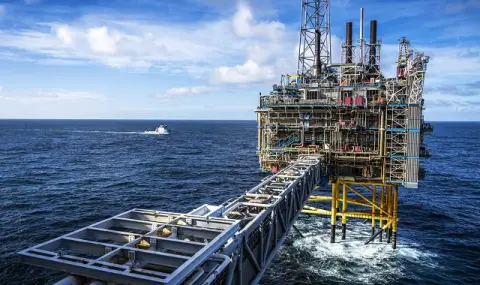Russia Spying On Wind Farms, Transmission Cables data and pipelines in the Baltic Sea. An international research project has for the first time been able to track the route of suspected Russian spy ships, writes ARD.
The discovery was made by chance: last October, a German patrol boat detected an unidentified vessel in the middle of the wind farm "Arcadis Ost 1" in the Baltic Sea, a few nautical miles from the island of Rügen. According to security sources, the transponders, which are supposed to indicate the ship's position, were switched off.
This was obviously done on purpose: the Russian research ship "Evgeny Gorigledzhan" detected in the area is part of the top-secret program of the Russian armed forces for deep-sea research, ARD wrote in its investigation on the subject. In addition to the regular crew, the ship also has armed soldiers - and serious technical equipment that can be used to explore the seabed. Patrolling German police officers head towards the uninvited guest and order the captain to leave the wind farm immediately, to which he complies.
In foreign territorial waters
The mysterious journey of "Gorigledzhan" not an isolated case. Time and time again, suspected Russian research vessels appear out of nowhere in the North and Baltic seas. The ships are believed to be conducting "hydrographic surveys". However, they are also used to systematically spy on fiber optic cables, military infrastructure and wind farms. However, this is illegal in the territorial waters of other countries.
These revelations are the result of the international research project "Russian spy ships", in which the NDR, WDR and "Süddeutsche Zeitung" participated on the German side, and within which more than 400 voyages of 72 Russian "research ships" since the beginning of the Russian aggressive war against Ukraine.
Such ships have crossed the North and Baltic seas at least 60 times, mostly with the tracking system turned off. Usually we are talking about moving very slowly, sometimes in a zigzag fashion, other times with stops in one place for several hours, notes ARD. Such maneuvers have more than once been carried out in close proximity to critical infrastructure - for example, gas pipelines, data transmission cables or wind farms. The collapse of such an infrastructure would have enormous consequences.
"Hostile objects”
Investigating journalists have managed to talk to a former sailor from the Russian research ship "Sibiryakov". He confirmed to them that the ships were tasked with conducting a precise survey of critical infrastructure: "Anything that appears on the seabed, whether it's an Internet cable or a power line, is a strategic, enemy object. (...) If you destroy it in case of war, you will have an advantage. Therefore, the direct function of research ships is to scan the seabed and provide this information to the military, ARD quoted him.
The alleged research vessels are usually equipped with sensitive sonar and radar technologies. Some ships, including the "Evgenii Gorigledzhan", also have devices for launching submarines and underwater drones.
A very real danger
The head of the Federal Intelligence Service (BND) Bruno Kahl is concerned about the growing presence of Russian spy ships in the North and Baltic Seas: "We think the danger is very real. This is not something we will face ten or twenty years from now. "The speed with which Russia is escalating tensions and also accelerating its own preparations to be able to act militarily against the West gives us reason to look very specifically at these threats, espionage and sabotage," Kahl told the investigative journalist team.< /p>
The North and Baltic Sea states now consider the hybrid threat from Russia so great that former general Hans-Werner Wirmann was brought back from retirement last year. His task was to create a NATO unit for the protection of underwater infrastructure, writes ARD. The main goal now is to ensure that suspicious ship movements do not go unnoticed in the future. Security communities in countries bordering the North and Baltic Seas are said to be planning to once again use more underwater sensors as they did during the Cold War. Private operators of maritime infrastructure could also provide more data on suspicious movements in and under the sea.
The current legal situation makes it difficult for neighboring countries to take action against this form of espionage. One of the means of the German authorities is to maintain a presence off the German coast with their own ships and track the Russian ships, writes ARD.
"Tougher" enforcement of maritime law
The investigation "Russian spy ships" shows that Russian spy ships are actually operating in the exclusive economic zones of Denmark, Estonia, Norway, the United Kingdom, the Netherlands, Finland, Germany and more. States have limited sovereignty in them, but they have the exclusive right to exploit the resources.
In some cases, the ships also entered the territorial waters of the respective countries, where espionage is prohibited. Well-known maritime law expert Wolf Heinstel von Heineg called before the ARD for "stricter enforcement" of international maritime law in the light of what the investigation has shown. It is also recommended that Europe consider providing better legal protection for critical infrastructure in offshore foreign economic zones.
